Tag Archives: Smartphones
Best Cell Phone Carriers: Small Providers Top The Big Four In New Consumer Reports Survey
by Mike Gikas, Consumer Reports
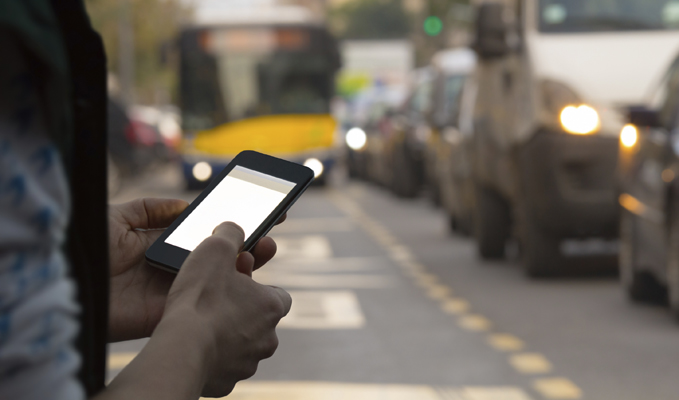
Many of the most satisfied respondents are those who use smaller cell phone providers such as Consumer Cellular, Cricket, Page Plus Cellular, Republic Wireless, and Ting Wireless. Exceptional scores for value helped propel these cellphone providers to the top for overall customer satisfaction. These companies offer lower costs and responsive, knowledgeable staff members. And some of them compensate subscribers who use less service than they’ve planned for. Read More ›
Paris Attacks Spark Another Fight Against Encryption
by Sean Sposito, San Francisco Chronicle
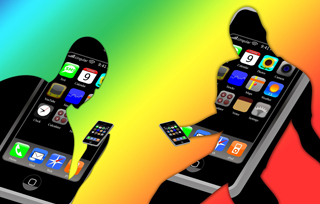
[Encryption “back-doors” for law enforcement] won’t necessarily weaken terrorist organizations’ ability to communicate with each other over the Internet. … But what it could do is make it easier for criminals and terrorists to access our financial, medical and other personal records, said Pam Dixon, the executive director of the World Privacy Forum in San Diego. They might find a way through the back-door as well. “Strong crypto means good security for all of us,” she said. “It means that banks and hospitals can secure financial and other transactions in our digital world.” Read More ›
CFPB To Consider Rules That Would Revoke Banks’ “License To Steal”
by Chris Morran, Consumerist

Earlier this year, the Bureau released its first report on arbitration in the financial products sector. It found that while the clauses are incredibly prevalent — 92% of prepaid debit cards and 88% of cellphone contracts use them — most consumers are completely unaware if they are affected. According to the CFPB, of those Americans constrained by arbitration agreements, fewer than 7% understood that this meant they had given up their right to file a lawsuit. “Consumers should not be asked to sign away their legal rights when they open a bank account or credit card,” said CFPB Director Richard Cordray in statement. Read More ›
Judge: Cellphone Tracking Requires A Warrant
by Ross Todd, The Recorder
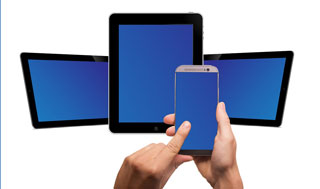
“Cellphone users do not expect that law enforcement will be able to track their movements 24/7 for a sixty-day period simply because the users keep their cellphones turned on,” [U.S. District Judge Lucy Koh of the Northern District of California] wrote in a 46-page order issued Wednesday night. … “This is a welcome ruling that will provide clarity for the government and important privacy protections for the public,” [Linda Lye, a senior staff attorney at the ACLU Foundation of Northern California,] said. “Going forward, we should expect the government to seek a warrant for this information.” Read More ›
California Senate OKs Requiring Warrants To Search Smartphones, Tablets
by Patrick McGreevy, Los Angeles Times

“What the bill does is brings our state statute into the 21st century to catch up with technology with regards to privacy,” [bill author Senator Mark] Leno told his colleagues. “Of course law enforcement needs a warrant before it can go into your mailbox and read your mail, but it does not currently need a warrant to read your emails or text communications or other electronic communications.” … Leno introduced a similar bill two years ago but it was vetoed by Gov. Jerry Brown. Read More ›
AB 886’s Privacy Protections For Uber Passengers Held Up

Update 6/1/2015: The deadline for bills to advance from committees to the Floor passed last week, forestalling any realistic chance of reviving AB 886 this session. The bill was defeated in the Assembly Utilities and Commerce Committee April 20. Committee Chair Anthony Rendon and Assembly Members Roger Hernandez, Miguel Santiago and Das … Read More ›
AB 886 Would Protect The Privacy Of Uber Passengers

Assembly Member Chau has pulled AB 886 from consideration. He and Consumer Federation of California are considering promising alternative strategies to protect the privacy of passengers using Uber and other so-called transportation network companies. The sensitive personal data collected by Uber, for example, includes name, address, bank account information, travel logs, as well as personal address books and online search records that it pulls from passenger smartphones. It’s becoming alarmingly common for corporations to “mine” such data and share – or sell – it to other businesses. Read More ›
Verizon’s Super-Cookies Are A Super Privacy Violation
by David Lazarus, Los Angeles Times

Verizon is informing customers that they can opt out of having their personal information shared by visiting the company’s MyVerizon website. But here’s something Verizon is neglecting to mention. Any visit to MyVerizon will result in — you guessed it — a cookie being generated for your computer or wireless device that will automatically enroll you in what Verizon calls its Relevant Mobile Advertising program, which oversees all online tracking. Think about that: Verizon will violate your privacy even as you go through the steps the company has set up to protect your privacy. Read More ›
iPhone Users Sue Claiming False Advertising, Cloud Storage Hawking
by Laura Northrup, Consumerist

The iPhone users’ attorneys claim that users aren’t told how much of their already meager storage capacity they will lose when upgrading their phone’s operating system. “Apple fails to disclose that upgrading from iOS 7 to iOS 8 will cost a Device user between 600 MB and 1.3 GB of storage space – a result that no consumer could reasonably anticipate,” they point out. … Once space runs out, the iDevice asks the user whether they’d like to rent some additional iCloud space. “For this service, Apple charges prices ranging from $0.99 to $29.99 per month,” the complaint notes. Read More ›
CFPB Lawsuit: Sprint Made Millions Off Consumers Acting As A “Breeding Ground” For Bill-Cramming
by Ashlee Kieler, Consumerist
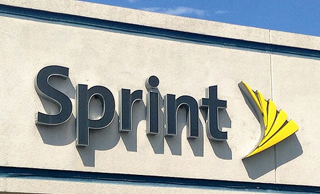
The CFPB reports that most affected Sprint customers were initially targeted by the third-party products online. “Consumers clicked on ads that brought them to websites asking them to enter their cellphone numbers,” officials with the CFPB say in a news release. “Some merchants tricked consumers into providing their cellphone numbers to receive ‘free’ digital content and then charged for it. Many others simply placed fabricated charges on bills without delivering any goods or communicating with consumers.” Read More ›
The Creepy New Wave of the Internet
by Sue Halpern, The New York Review of Books

Apple offered a glimpse of how the Internet of Things actually might play out, when it introduced the company’s new smart watch, mobile payment system, health apps, and other, seemingly random, additions to its product line. As Mat Honan virtually shouted in Wired: “Apple is building a world in which there is a computer in your every interaction, waking and sleeping. … telling you how many steps you took, how high you climbed and how many calories you burned. … THIS IS THE NEW APPLE ECOSYSTEM. APPLE HAS TURNED OUR WORLD INTO ONE BIG UBIQUITOUS COMPUTER.” Read More ›
Americans Say They Want Privacy, but Act as if They Don’t
by Claire Cain Miller, The New York Times
Pew offered some evidence that people are inured to the trade-offs of using digital services: Ninety-one percent agree or strongly agree that consumers have lost control over how their personal information is collected or used by companies. They are unsure what to do about it, though. Nearly two-thirds say they would like to do more to protect the privacy of their personal information online. About the same number think the government should do more to protect them. Read More ›
Apple Mobile Devices Vulnerable To App Attack, FireEye Says
by Jeremy C. Owens, San Jose Mercury News
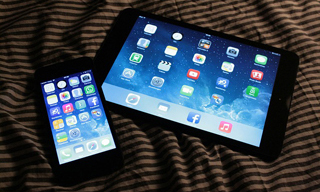
Apple mobile devices can leak users’ information through an attack using apps distributed outside the company’s App Store, a prominent Silicon Valley security company disclosed Tuesday. … Hackers could offer a mobile app through the Web that would mimic a legitimately downloaded application on a user’s device, siphoning important information such as login info or emails. An example provided showed that a third-party app called “New Flappy Bird” could replace the Gmail app and access cached emails, using the same “bundle identifier” that Apple uses for the Gmail app. Read More ›